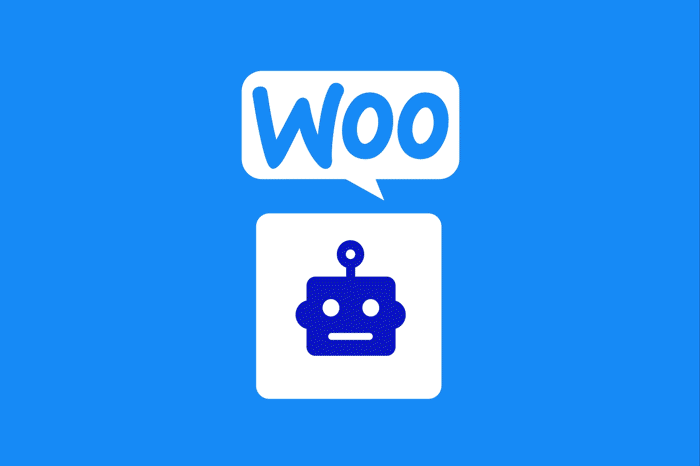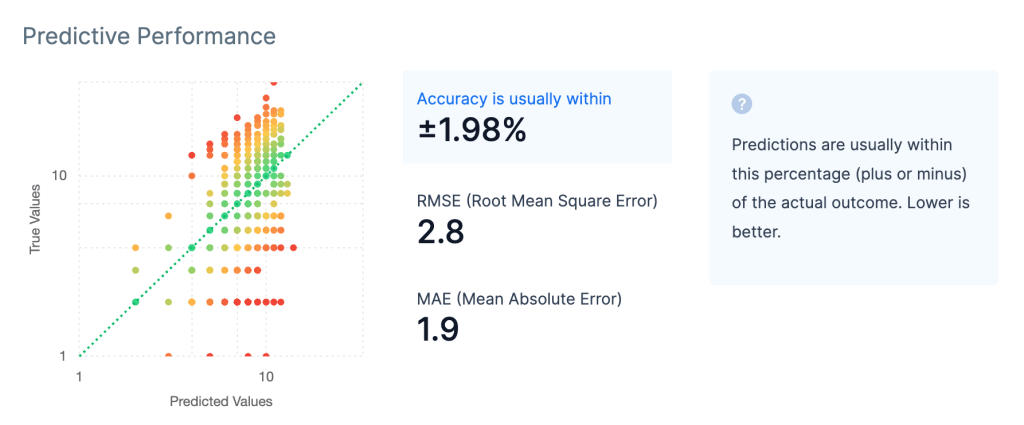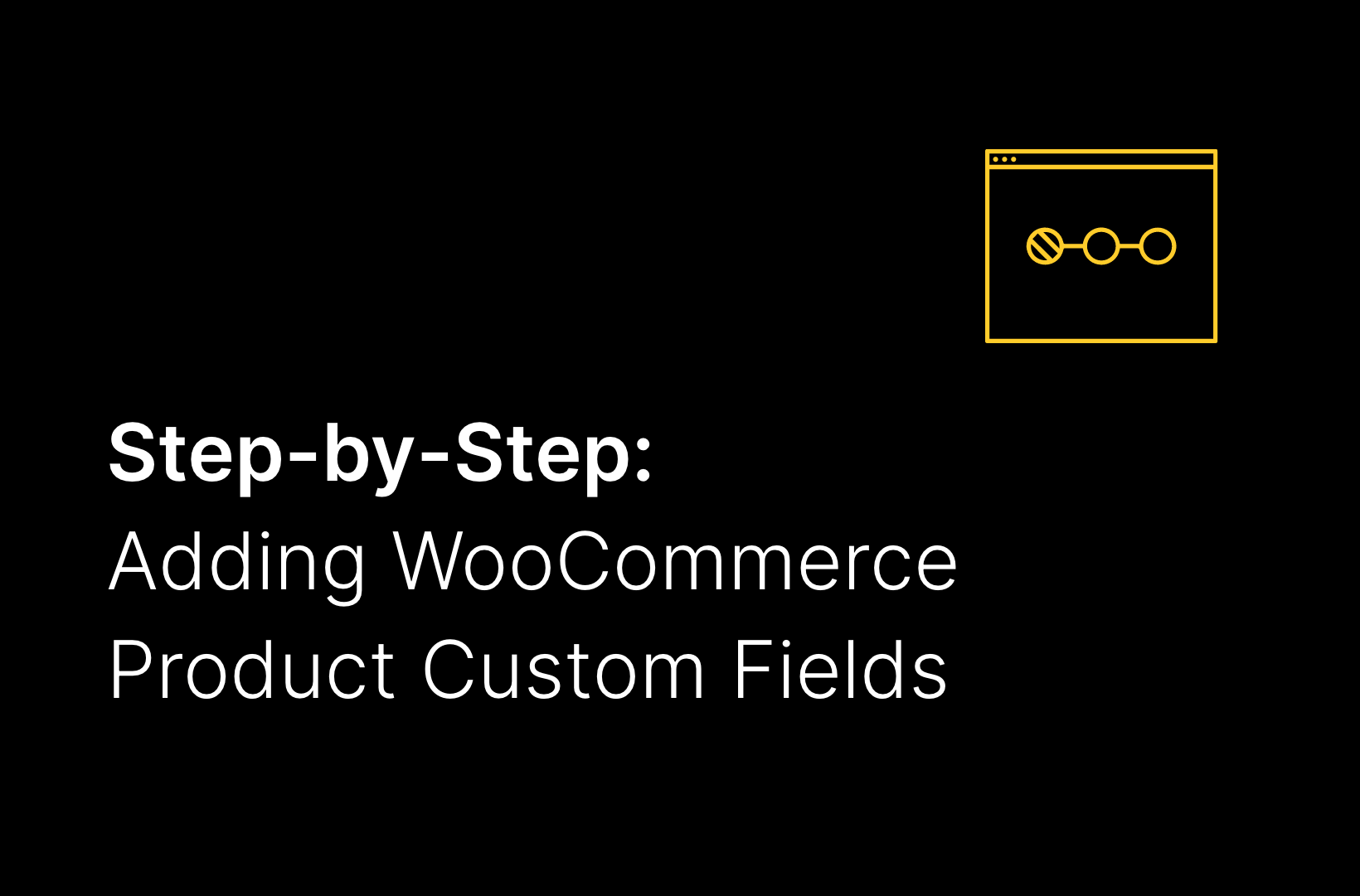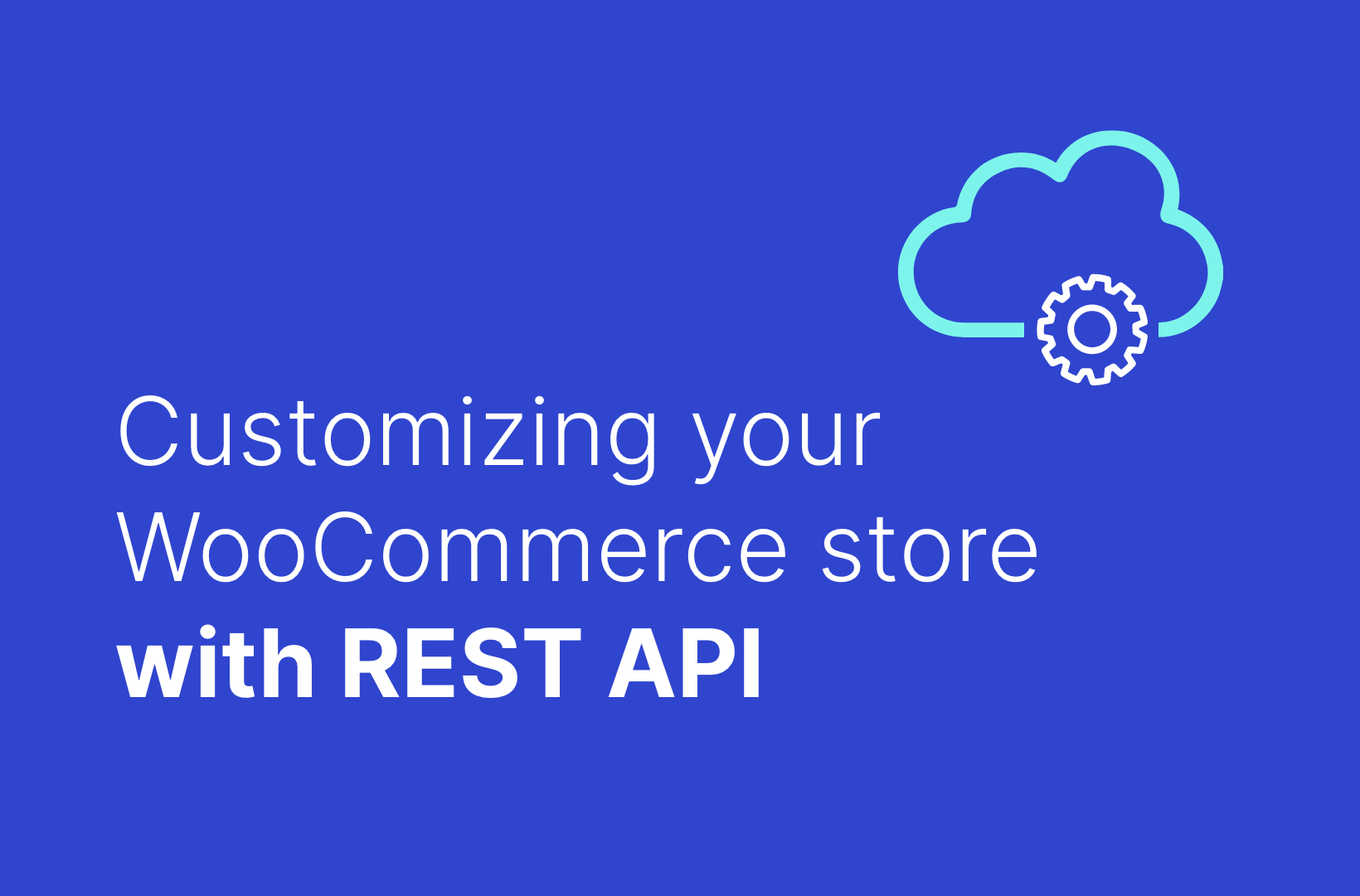Seeing the Future of AI in WooCommerce – Oh! The Places You Can Go

In an era where data reigns supreme, and innovation is the currency of business survival, Artificial Intelligence (AI) has emerged as a transformative force, rewriting the rules of whole industries.
From healthcare to transportation, finance to retail, AI’s impact has been both broad and deep – serving as a catalyst for change, agility, and efficiency. Yet, for all its grandeur, one domain where AI promises a unique blend of transformation and enhancement is eCommerce.
Specifically within the WooCommerce ecosystem, the implications are revolutionary.
Imagine a WooCommerce store that not only understands your preferences but can also predict your needs, optimize inventory in real-time, and provide customer support that is as empathetic as it is efficient. That is the promise of AI – a promise that goes beyond mere transactional improvements to bring about strategic transformations.
Let’s be clear though. AI is not replacing human intervention anytime soon.
There are a lot of popular misconceptions that brand AI as a workforce replacement or a cost-cutting measure.
While that might be the goal of some short-sighted stores, we believe that the integration of AI in WooCommerce processes is going to be far more radical. The best results are not going to come from being faster at things, but rather utilizing AI to do things at a level, scale, and accuracy you wouldn’t normally be able to achieve.
The end game is going to be all about enhancing efficiency, elevating user experience, and unlocking avenues for growth that were previously considered unattainable, with the help of AI!
How that can be done – well, that’s what we’re here to see!
The Power and Potential of AI in eCommerce
The rapid proliferation of Artificial Intelligence (AI) across various sectors has metamorphosed it from a buzzword into a tangible driver of business value. eCommerce, a sector intrinsically tied to technological innovation, stands on the cusp of a seismic shift powered by AI’s capabilities.
Before we delve into specifics, it’s essential to understand that AI is a composite term – encompassing Data Mining, Natural Language Processing (NLP), and Machine Learning. Each brings unique capabilities to the table:
- Data mining excels at harvesting both current and historical data to provide predictive insights.
- NLP focuses on facilitating seamless human-computer interactions by interpreting natural human language.
- Machine learning, especially its more advanced form, Deep Learning, employs a host of algorithms layered intricately to discern deeper insights from data.
Together, they offer a Swiss Army Knife of sorts, each tool fine-tuned for specific tasks but collectively offering a holistic approach to problem-solving.
The application of AI in eCommerce is far from hypothetical. Take Amazon, for instance – a titan of the online retail space. Amazon’s cutting-edge machine learning algorithms power everything from its product recommendations to logistical efficiencies.
The need for AI-based automation is further highlighted in this publication by McKinsey & Company and the Retail Industry Leaders Association, Retail Speaks: Seven Imperatives for the Industry.
Here are some key takeaways from this study, demonstrating how AI will drive the future of retail commerce:
- Enhance real-time customer analytics, allowing retailers to quickly adapt to shifts in demand and optimize in-store experiences.
- Robotic process automation (RPA), by working with automation technologies like AGVs (automated guided vehicles) and ‘cobots’ (collaborative robots), to speed up fulfillment, while AI algorithms optimize network operations to balance various supply chain factors.
- Quantify the impact of sustainability and other purpose-driven initiatives, allowing for performance tracking against set targets.
- Automate large-scale operations within the ecosystem, and assist in analyzing massive datasets for insights to enable retailers to transform their business models, innovate, and better understand consumer behavior.
- Automate inventory management through real-time image processing and streamline administrative tasks, freeing up managers to engage with customers.
- Track and optimize the entire delivery process, improving customer satisfaction scores.
- Reduce third-party spending with the help of AI-driven analytics to help increase productivity.
Considering current and future eCommerce trends, automation is going to play an especially major role in streamlining operations, implementing targeted marketing and personalization, and increasing sales process efficiency in the near future.
WooCommerce store owners who can successfully implement the might of AI are going to see direct benefits such as:
- The ability to offer hyper-targeted product suggestions based on browsing history, previous purchases, and other user behavior using machine learning algorithms
- Dynamic price adjustment based on various factors such as demand, supply, and competitor pricing strategies.
- NLP-driven chatbots for 24/7 customer service, handling frequent queries and leaving only complex issues for human operators.
- Smart demand prediction and optimization of delivery routes to significantly reduce operational costs and improve efficiency.
- The ability to predict future sales trends, which can help store owners make data-backed decisions about inventory and marketing.
Have you spotted the problem here yet though?
We’ll explain.
As AI becomes increasingly integrated into eCommerce platforms like WooCommerce, we’re likely to see a more and more homogenized landscape.
That brings forth a crucial challenge for store owners – how to stand out in a sea of AI-augmented sameness?
The key will be to use AI smartly, not just for the sake of automation but as a strategic lever for differentiation.
Which is why, here’s how we plan to help WooCommerce store owners place their unique spin on these powerful technologies to create an unparalleled shopping experience.
Using AI in WooCommerce: Beyond the Ordinary Use Cases
Strategy 1: AI-Driven SEO-Optimized Product Pages
Imagine you’ve got an exceptional product, but it’s hidden away on the 10th page of Google search results, drowned out by a sea of competitors. In today’s digital-first economy, if you’re not easily discoverable, you’re essentially invisible.
This is why SEO isn’t just a marketing strategy; it’s a lifeline for your online store. An SEO-optimized product page can significantly boost your online store’s visibility, helping you rank higher on search engines like Google.
Higher visibility equals higher traffic, and higher traffic can translate to higher conversions – making SEO a critical factor for eCommerce success.
But, wouldn’t it be transformative if your WooCommerce store could automatically generate SEO-friendly, conversion-optimized product pages?
Well, enter Artificial Intelligence.
AI can revolutionize how you create and manage your product pages in several exciting ways.
Curated & insightful product descriptions
Generative AI can sift through vast databases to curate and generate multiple unique, compelling, and richly detailed product descriptions. These aren’t your run-of-the-mill auto-generated descriptions but deeply insightful and compelling narratives designed to engage the customer and stimulate buying impulses.
Tailoring content for target audiences
Based on customer interactions, reviews, comments, and other behavioral data, the AI algorithms can tailor the product descriptions to resonate with specific customer profiles. For example, if your yoga pants are particularly popular among the millennial demographic, AI can detect this and tweak the descriptions to include buzzwords or phrases that millennials relate to.

SEO-focused writing
The AI would be equipped with a deep understanding of SEO best practices. It would automatically generate product descriptions containing high-performing keywords, meta descriptions, and even title tags – ensuring that each product page is optimized for maximum visibility.
Predictive modeling
By analyzing the performance of various product descriptions, AI can employ predictive models to consistently generate high-performing content. Imagine having an AI tool that learns from each iteration and continually refines its approach for better results.
For instance, HuggingFace lets you create and train custom machine learning models through its AutoTrain ML deployment solution.
Global reach through translation
eCommerce knows no borders. Why should your store? AI can automatically translate product pages into multiple languages, ensuring that you reach a global audience without sacrificing the SEO or the quality of your content.
In a nutshell, here’s how it would work:
- Store owners upload their products, complete with images and basic descriptions.
- The AI module kicks in, analyzing the basic data and generating multiple versions of enriched, SEO-friendly product descriptions.
- These descriptions are then A/B tested on the product landing pages.
- The AI algorithm learns from this data, selecting the version that results in the highest conversions, and continually iterates for future products.
Imagine the power and efficiency of such a system. You won’t just be saving time but elevating the quality and performance of every product page, thus opening new avenues of revenue and customer engagement.
This approach isn’t just about automating a labor-intensive process; it’s about doing something humans couldn’t feasibly do at scale – personalize, optimize, and adapt product descriptions based on real-time data and predictive analytics. It takes WooCommerce store optimization from a one-size-fits-all model to a dynamic, responsive, and intelligent system.
With the AI revolution, we can expect some new tools to come up, while others adapt. In fact, some existing WooCommerce plugins, like Weglot, already have AI-translation features, whilst other AI-native apps are likely to appear soon in the future!
Strategy 2: Upselling and Cross-Selling with Precision
Let’s face it; you love it when a sales associate recommends a pair of sunglasses that perfectly complements the beachwear you’ve picked out, don’t you? In the physical world, this level of personalized service has often been the cornerstone of upscale retail.
But in the online space, such ultra-targeted, thoughtful upselling and cross-selling have largely been elusive – or at least until now. AI is poised to inject this kind of personalized, beneficial selling into the very bloodstream of your WooCommerce store, enhancing not just your revenues but also your customer’s shopping experience.
Increasing your Average Order Value (AOV) is the classic way to make your revenue numbers sing.
However, it’s not just about adding more dollar signs to your bottom line.
It’s about enriching your customer’s shopping experience, making it so memorable and satisfying that they not only return but also become your brand evangelists.
AI chatbots: The personal shoppers of the online world
You might remember the first wave of chatbots, which often left much to be desired. They were like overeager salespeople who were, unfortunately, uninformed. But we’re entering a second wave, where chatbots, powered by large language models like GPT-4, can offer an incredibly intuitive and helpful experience.
Imagine linking such an AI chatbot to your WooCommerce store’s database. The chatbot would have a ‘source of truth’ and could answer customer queries, manage orders, and even offer personalized product recommendations, going far beyond the “customers who bought this also bought that” paradigm, all in real-time and without human intervention.
For instance, if someone is buying a DSLR camera, the chatbot could smartly suggest not just an obvious lens or tripod but perhaps a best-selling photography book or a highly-rated online photography course.
The chatbot could even consider the user’s prior engagement with photography-related content, offering a cross-sell opportunity that feels both personal and insightful. This level of personalized service would substantially increase your AOV while boosting customer satisfaction.
This kind of upselling ability between non-obvious products based on the customer’s previous purchases is already a part of the retail industry. For example, remember the time when Target used statistical techniques to figure out a customer was pregnant before even her family became aware of it?
We don’t want to go all Black Mirror here, but the point is – with enough consumer information in your database, AI may be able to predict what your customers want across multiple verticals, before even they know it themselves!

Of course, with great power comes great responsibility, so it will be extremely important to handle this information with care and sensitivity. But the possibilities are wild!
Supercharged product search and filters
A frustrating search experience with irrelevant product suggestions can send potential buyers fleeing from your WooCommerce store. However, AI can be leveraged to make your product search engine as smart as Sherlock Holmes with the intuition of an experienced sales associate.
Imagine your search bar being capable of understanding natural language, user behavior, and even emotions to some extent. Looking for a “comfortable, breathable summer dress“? The AI will sift through your product catalog to find options that have received reviews praising their comfort and breathability, not just those tagged with ‘summer’ and ‘dress.’

Or, perhaps it uses Computer Vision to scan your product images and return the result that looks most comfortable and breathable. Or a combination of the two, as per your preference!
Smarter customer segmentation
If all your customers were the same, life would be so much easier – but also so much more boring. AI can excel in segmenting your customers based on various factors: behavioral data, spending patterns, engagement levels, and more.
Unlike rudimentary tagging, this could be a dynamic process where your customers are continually re-segmented based on their interactions with your store. This, in turn, would make targeted marketing campaigns much more effective, influencing both upsells and cross-sells.
At the end of the day, the smarter your upselling and cross-selling strategies are, the more you are going to enhance your customer’s journey. And a happy customer won’t just mean a one-time higher basket value; it will be a lifelong relationship, with compounding financial benefits for your WooCommerce store.
Strategy 3: Forecasting Essentials – From Hosting to Inventory Management
For WooCommerce store owners, preparedness isn’t just a virtue – it’s a business necessity. A well-run WooCommerce store isn’t just a showcase of well-curated products; it’s a complex machine of interlocking parts, from web hosting to inventory management.
However, the room for error is shrinking, and the cost of mistakes is growing. Here’s where Artificial Intelligence (AI) steps in, offering game-changing solutions in forecasting essentials.
Accurate forecasting equips you with the insights you need for efficient operations and an enhanced customer experience. Imagine never having to face the business nightmare of overstocking, understocking, or downtime due to server overload. AI enables you to move from a reactive model to a proactive one, reducing waste and increasing efficiency.
Predicting hosting requirements
Do you too dread the crippling anxiety that precedes big sale days, worrying whether your web hosting can handle the surge? With AI, those days could be a thing of the past.

AI can analyze current usage and predict future hosting needs based on trends in traffic, year-on-year growth, and sales patterns. This level of forecasting ensures that your WooCommerce store remains fast and accessible even during peak times.
AI-enabled inventory management
Machine learning shines in the field of logistics, helping forecast transit times, demand levels, and even shipment delays. AI can go beyond analyzing past sales data; it incorporates real-time customer behavior and seasonal trends to provide more accurate inventory predictions.
Particularly post-COVID-19, businesses have realized the need for flexible inventory planning based on both real-time and historical data. As suggested by the McKinsey report we’ve mentioned above, companies can build better inventory plans using AI algorithms that consider real-time digital and physical trends, adapt product assortments accordingly, and test rapidly to continually adapt to changing customer needs.
The reason is obvious – ineffective inventory management can be expensive. In the State of Logistics Report 2022, Kearney states that inventory carrying costs now account for 27.1% of the total costs. This can put a significant dent in profits, especially if you have an inventory glut.
Besides, inefficiency in inventory management can result in:
- Overstocking and understocking leading to warehousing issues and potential loss of sales.
- Loss of real-time tracking which can cause significant delays in order processing and delivery.
- Storing of excess inventory which increases costs, which ultimately impacts the product price.
- Late deliveries or out-of-stock items that can lose you customers forever.
- Wasted hours spent in rectifying inventory imbalances that could instead be used in productive, revenue-generating activities.
Fortunately, AI can make this a thing of the past. With artificial intelligence at the helm, forecasting is no longer about guesstimates and approximations, it’s about data-driven precision that continuously adapts and learns.
AI-enabled WooCommerce stores can enjoy:
Balance in inventory
AI can predict when you’ll run out of a particular product and when you should reorder. It learns from both historical and real-time data, adapting to seasonal trends and market shifts.
Timely deliveries
AI can forecast transit times, enabling you to provide more accurate delivery estimates to your customers.
Cost optimization
Store owners can automate inventory replenishment processes by integrating AI with suppliers for just-in-time restocking.
Satisfied customers
Better forecasting and inventory management can lead to on-time deliveries, improved product availability, and ultimately, happier customers.
Time-saving
AI can automate much of the grunt work in inventory management, freeing you to focus on strategic, revenue-generating activities.
In a world that’s ever-changing, this level of agility isn’t just a ‘nice-to-have’; it’s essential for survival and growth. Imagine a WooCommerce store that never faces an inventory imbalance, never crashes on Black Friday, and always delivers on time. That’s not a fantasy; it’s the future of eCommerce, enabled by AI.
Strategy 4: Image Generation With AI
In the online shopping world, visuals are the new storefronts. Customers can’t touch or try your product; they rely on images to gauge its quality, utility, and even its ethos. Bad images equal bad business.
Currently, eCommerce platforms spend vast amounts of time, effort, and money in photoshoots, editing, and then A/B testing these images.
But what if there’s a more efficient way?
The promise of generative AI tools
The field is ripe for innovation, and as AI technology progresses, the potential applications in image generation will too. We’re talking about smart systems that can capture the zeitgeist of consumer demand in real-time, converting that into visuals that speak not just to the masses, but to individual consumers.
Enter tools like DALL-E, which have already shown how AI can generate coherent and contextually appropriate images based on textual descriptions. Imagine not having to organize a photoshoot every time you add a new product to your WooCommerce store.

Instead, you provide a detailed product description, and AI does the rest, crafting high-quality images that accurately represent your product.
Now, while the promise is tantalizing, the technology does have limitations. For AI to generate an image that matches the level of human expectation and detail, especially for product images that consumers scrutinize, is a complex challenge. However, there are short-term solutions.
Short-term practical applications
Store owners could upload a set of 50-100 product photos as a foundational library. AI could then be trained on these images to create new, unique visuals. You could potentially have AI-generated images personalized to the customer’s past behaviors or preferences, or tailored for specific markets or seasonal promotions!
The impact: A/B testing and beyond
One of the most grueling aspects of eCommerce is A/B testing images to find out which ones maximize clicks and conversions. With AI, this process can be more efficient. AI doesn’t just generate images; it can also A/B test them in real time, adjusting based on user engagement to automatically choose the most effective visual representation for your products.
Visuals shape perception, and perception drives action. By harnessing the untapped potential of AI in image generation, WooCommerce store owners can elevate customer experience to unprecedented levels.
While the full-scale implementation of AI-generated product images might be a future endeavor, the steps you can take today promise significant returns.
Strategy 5: Amplifying Conversion Rates Through AI-Driven A/B Testing and Marketing Refinement
The holy grail of eCommerce lies in understanding consumer behavior – what draws them in, what turns them off, and most importantly, what persuades them to click that coveted “Buy Now” button.
One could argue that eCommerce is less about selling products and more about selling experiences. The user journey from entering your WooCommerce store to finally making a purchase involves multiple touchpoints, each of which can be optimized for higher conversion rates.
A/B testing allows you to understand the nuances of user behavior and preferences. Paired with an intelligent marketing strategy, it’s a potent recipe for soaring sales.
But how can you add that extra zing to this mix? With AI and ML.
You’ll need your own models in order to run tests like this. This sounds difficult, but is much easier than it sounds with the emergence of AutoML (again, Hugging Face’s AutoTrain is a cost-effective option). This also ensures that your models are specifically trained on your data and are thus more accurate and harder to replicate.
Unparalleled precision in A/B testing
Instead of relying on simple metrics and predetermined variables, AI-based algorithms can consider multiple factors at once, including real-time data, past behavior, and even broader market trends.
AI can execute multiple iterations of A/B tests faster and more accurately, thus achieving statistically significant results in a fraction of the time. Besides, as the machine learns from incoming data, it continually refines the testing variables to align closely with KPIs like conversion rate, customer lifetime value, and bounce rate.
Refining marketing and promotional strategies
AI can analyze vast troves of data to identify intricate patterns and correlations that humans might overlook. With these insights, you can create personalized marketing campaigns that resonate with specific customer segments.
For instance, AI can predict the optimal time of day to send promotional emails or identify the kind of content that gets the most engagement. This targeted approach inevitably results in a higher conversion rate.
Real-time adaptability
The dynamic nature of AI and ML algorithms allows for real-time adjustments. If a particular marketing strategy isn’t yielding the expected results, the system can instantly adapt, shifting resources to more promising avenues. This level of agility is virtually impossible to achieve with human-led strategies.
The ultimate payoff: Skyrocketing conversion rates
When AI and ML fine-tune your A/B testing and marketing strategies, you are essentially setting up a self-improving loop of constant optimization. This invariably leads to a more compelling user experience, more effective marketing campaigns, and ultimately, higher conversion rates for your WooCommerce store.
AI and ML offer an unmatched level of sophistication in A/B testing and can exponentially amplify the efficacy of your marketing and promotional strategies. As you explore these advanced techniques, you’re not just keeping up with the times; you’re staying ahead of the curve.
The future isn’t just about better products; it’s about smarter strategies that convert.
AI: A Tool, Not Always the Solution
From revolutionizing inventory management to predicting customer behaviors with uncanny accuracy, AI stands as a formidable force in eCommerce. However, in the dazzle of its capabilities, it’s essential to remember that AI is a tool – not the only solution.
In the frenzy to stay ahead in the competitive marketplace, there’s a growing inclination to throw AI at every problem that arises in eCommerce. Yet, not all issues require, or warrant, the complexity of machine learning or predictive analytics.
Sometimes, the most effective solutions are the simplest ones, refined through years of practical experience and human intuition.
For instance, while AI can analyze customer behavior to optimize product placement in your WooCommerce store, the art of storytelling or brand building often comes best from human creativity.
The emotional nuances that drive a compelling marketing campaign or the subtleties of human interaction in customer service can seldom be replaced entirely by algorithms.
Is AI the Best Fit? The Importance of Assessment
Before diving headlong into AI-driven solutions, it’s crucial to assess the problem you’re trying to solve critically.
- What is the scope of the issue?
- Could it be resolved more efficiently with existing methods?
Sometimes a well-designed spreadsheet or a keen human eye could provide quicker and more accurate solutions than a machine that requires time to learn and adapt.
If AI does appear to be the best solution, ensure that it aligns with your store’s broader goals and objectives. Just because a technology is available doesn’t mean it will necessarily yield ROI, improve customer satisfaction, or enhance your brand’s reputation.
Striking a Harmonious Balance
The future of eCommerce will likely not be an ‘either-or’ between AI and human-led solutions but a ‘both-and.’ The most successful WooCommerce stores will be those that employ a harmonious blend of the technological prowess of AI and the irreplaceable qualities of human intellect and emotion.
Imagine a customer service model where AI sorts through common queries, freeing up human agents to deal with more complex, emotionally-driven issues.
Or think of a marketing strategy developed through human creativity but finessed by AI analysis to ensure maximum reach and engagement.
It’s this kind of balanced ecosystem that promises the best of both worlds: efficiency and empathy, speed and substance, automation and authenticity.
In an age where ‘AI-first’ is becoming a catchphrase, it’s vital to remember that ‘AI-only’ is rarely the answer. The key is to apply discernment and thoughtfulness in integrating AI into your WooCommerce store.
Let it take care of what it does best – analyze data, predict trends, automate repetitive tasks – while leaving space for what only humans can provide: the creativity, emotional intelligence, and ethical considerations that make a business not just profitable, but also relatable and responsible.
Harness the Power of AI With Saucal
As we’ve journeyed through the landscape of AI and its transformative potential in WooCommerce, one thing is abundantly clear: The future of eCommerce is not just digital, it’s intelligent.
But as you consider integrating AI into your WooCommerce store, remember that it’s not just about adopting technology; it’s about adopting it wisely, efficiently, and ethically.
That’s where Saucal comes in.
With over 12 years of specialized experience in WooCommerce, we’re not just another agency; we are certified Platinum Partners for WooCommerce and WordPress VIP Partner Award Winners for Innovation.
From unique Managed WooCommerce services to our game-changing RADAR optimization tool, our services are meticulously crafted to ensure your WooCommerce store is not just current but future-ready.
Navigating the complexities of WooCommerce requires a balance of technical prowess and strategic insight, and that’s precisely what Saucal delivers. Whether it’s implementing advanced AI strategies, ensuring high-performance hosting, or crafting bespoke development solutions, we’ve got your back.
At our core, we’re passionate creators just as much as savvy managers. We don’t just build WooCommerce stores; we craft experiences that dazzle today and are engineered to steal the spotlight tomorrow!
We help you keep your finger on the pulse, make smart choices, and embrace the transformative magic of AI – all with a sense of responsibility, of course.
If you are looking for a WooCommerce development partner that’s not just future-ready but is actually setting the pace for what’s next, get ready to soar higher than ever with Saucal.



